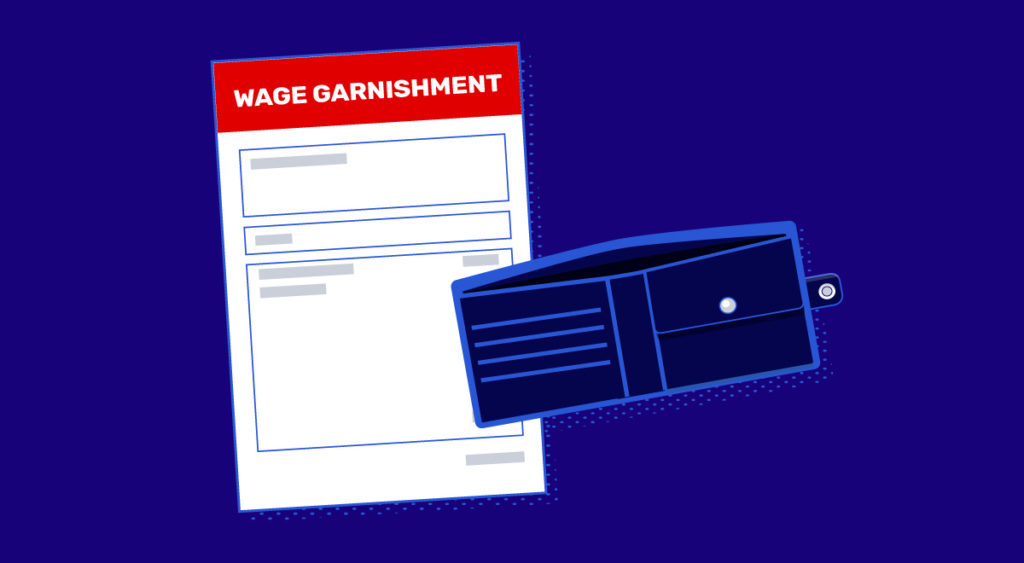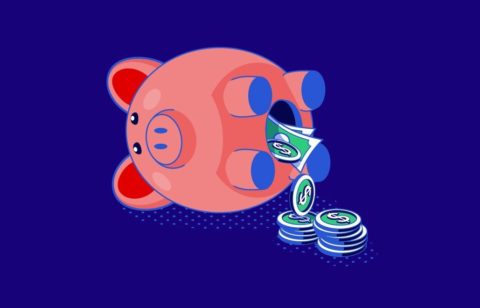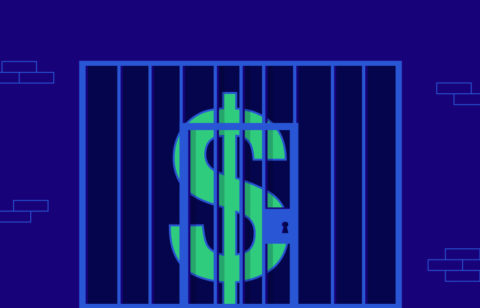Sometimes, debt becomes so overwhelming that we simply can’t pay it. Even before you explore debt relief options and getting your personal finances in check, creditors could take extreme measures to collect what’s owed to them.
Wage garnishment is one tool debt collectors use to get you to pay.
“A wage garnishment is a levy,” says Michael Sousa, an associate professor of law at the University of Denver’s Sturm College of Law. “It’s a lien on your future wages.”
Usually the result of a court order, a wage garnishment allows the creditor to seize part of your paycheck to get what’s owed them. In some cases — such as debts owed to the IRS — a court order isn’t necessary to get a wage garnishment.
Types of debt that can lead to wage garnishment include:
- Credit card bills
- Medical bills
- Debts tied to a sudden and unexpected event, such as a job loss or divorce
A wage garnishment is a relatively common way for creditors to seek the money that debtors owe. ‘Wage garnishments happen all the time,” Sousa says.
However, the consequences of wage garnishment can be significant for your disposable income and your credit score.
“Wage garnishment from a debtor’s perspective is serious,” Sousa says. “If you want to drive the individual into bankruptcy and to talk to an attorney, then you file a wage garnishment against them.”
What Does Wage Garnishment Mean?
The U.S. Department of Labor defines wage garnishment as a legal procedure in which a court order mandates that an employer withholds a person’s earnings for the payment of a debt.
“A garnishment means the creditor is getting the debtor’s assets from the hand of a third party,” Sousa says.
Garnishments typically occur after the debt collector has made repeated attempts for nonpayment, Sousa says. This may include:
- Phone calls from the creditor to the debtor
- Written letters that request payment
- Payment coupons the creditor sends and the debtor ignores
Sousa says credit card companies are unlikely to pursue wage garnishment until “the situation gets so bad that the creditor perceives that there’s no possibility of recovery.”
The consequences of wage garnishment can be devastating for debtors, depriving them of substantial portions of their income.
“State statutes may differ, but with the federal statute and the state statutes I’ve looked at, you can take up to 25% of the disposable wages of an individual,” Sousa says. “That’s a lot.”
What’s the difference between a wage garnishment and a tax levy?
A wage garnishment shouldn’t be confused with a tax levy. A wage garnishment is a levy against your future wages.
“A tax levy is not necessarily against your wages — it’s against your assets and personal property,” Sousa says.
For instance, a real estate levy for back taxes becomes a lien against your real property. If the federal government hits you with a levy for unpaid taxes, the government gets a lien on all of your assets, whether they be real property or personal property.
“The idea of garnishment is you’re collecting from a third party who is possessing the debtor’s assets, where a tax levy is against an asset or property that the debtor already owns,” Sousa says.
Is Wage Garnishment The Same As A Payday Loan?
A payday loan and a wage garnishment are two separate things. However, if you don’t pay a loan that you owe to a payday lender, the lender could sue you. If the lender wins the case, the court could enter an order or judgment against you.
Once that happens, the payday lender can seek to have your wages garnished.
How Does Wage Garnishment Affect Your Credit Report?
Since 2017, the three major credit bureaus — Equifax, Experian, and TransUnion — have had a policy of removing civil judgments and tax liens from the public record section of all credit reports.
Experian notes that courts don’t send in information regarding wage garnishments. But this doesn’t mean a garnishment won’t have an impact on your score.
The delinquent account that caused your wages to be garnished will likely still appear on your credit report, and the creditor may add a notation that a wage garnishment has been used to obtain payments on the credit card debt.
While this may hurt your score, it’s important to note that by the time a court has ordered your wages to be garnished, it’s fairly certain that your credit score has already been heavily damaged by your failure to pay your credit card debts.
How do you get a wage garnishment removed from your credit report?
If you’ve paid off the debt — or if you simply believe the information in your credit report is inaccurate or no longer up to date — you can ask the credit-reporting agencies to dispute the information with the creditor and request that the agency update your file.
Typically, you can do this online, over the phone, or by U.S. mail.
If you’ve been subject to wage garnishment in the past and want to make sure your credit reports accurately reflect your current payment status, go to AnnualCreditReport.com and request your free credit report from each of the three major credit-reporting agencies.
By law, you’re entitled to one free credit report annually from each of the three agencies. However, due to the coronavirus pandemic, you can access your report weekly through April 20, 2022.
What Are The Consequences Of Not Paying A Wage Garnishment?
If you’re the target of a wage garnishment, you won’t have the option of deciding whether or not to pay it. By law, your employer will make sure the money is taken from your paycheck before you even see it in your bank account.
The employer could decide not to follow the garnishment order, but the consequences for the business can be “extreme,” according to the Society for Human Resource Management.
In a majority of states, employers that ignore a garnishment can be liable for up to the full amount of the debtor’s outstanding debt.
SHRM urges employers to fully understand the wage garnishment state laws and to follow them.
Wage garnishments can cut deeply into your take-home pay, making life extremely difficult for most workers who have the misfortune of seeing their wages garnished. For that reason, Sousa urges you to try to work with your creditors so wage garnishment never becomes a reality.
Unfortunately, many debtors simply try to avoid the problem when it arises.
“For a whole host of reasons, debtors will often ignore informal collection efforts, primarily because they’re underwater and they really can’t afford to pay the debt back for whatever reason,” Sousa says.
Be proactive and seek debt relief
No matter what financial hardships you face, it’s better to be proactive about your debt. Some experts recommend seeking credit counseling, which can help you create a plan to pay back what you owe. You also might consider working with a debt settlement company that provides a free consultation.
Sousa recommends talking directly to your creditor to see what you can negotiate.
“If a creditor is after you for an unpaid debt, the first thing you should do is to call your creditor and see if you can work out a repayment plan,” he says.
Ask if the creditor would be willing to lower the amount of the principal, or the amount of interest that you owe.
“In my experience, most of the time people can successfully make payment arrangements,” Sousa says.
At National Debt Relief, we take pride in empowering people to regain their financial stability through our proven debt relief program. Contact us and talk to a financial expert who will work with you to find the best option to settle your debt and help you achieve financial independence.





